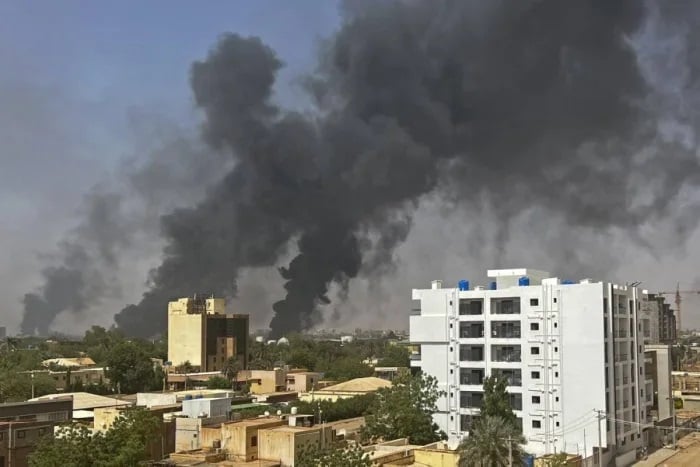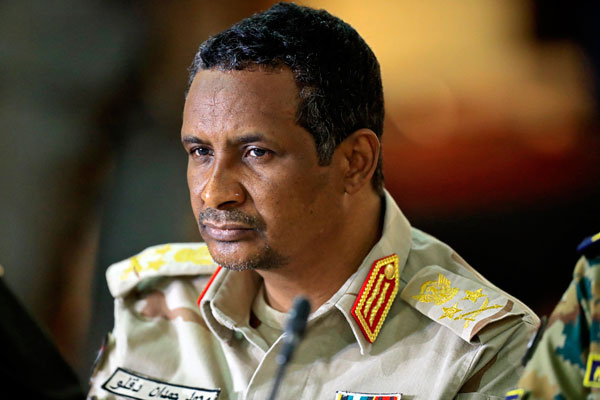Sudan fighting could affect regional trade, warns envoy

Smoke billows above residential buildings in Sudan’s capital Khartoum as fighting raged for a second day on Sunday. PHOTO/AFP
What you need to know:
- Since the weekend, forces allied to Sudan National Army and a paramilitary have been fighting each other in the Sudanese capital, Khartoum and other cities that could affect the sole pipeline that delivers South Sudanese oil.
The South Sudan Envoy to Uganda, Amb Simon Juach Deng, has said the fighting in Sudan could affect the economics of South Sudan and Uganda if it isn’t quickly stopped.
Amb Juach, who was speaking on KFM’s Hot Seat hosted by Mr Patrick Kamara yesterday, said whatever affects Sudan and South Sudan, Uganda and other East African Community members would too be impacted.
“South Sudan will feel the pinch because if our source of earnings of hard currency are affected, then we aren’t going to have the purchasing power to buy the produce that are currently being imported to South Sudan from Uganda,” Amb Juach said.
Since the weekend, forces allied to Sudan National Army and a paramilitary have been fighting each other in the Sudanese capital, Khartoum and other cities that could affect the sole pipeline that delivers South Sudanese oil, which is the major foreign exchange earner to the sea.
The Sudan paramilitary and the national army are fighting at the Khartoum ports, making the loading of oil of tankers difficult.
Even before the fighting, South Sudan’s economy had been in shambles after internal armed struggles between President Salva Kiir and his Vice President Riek Machar.
Uganda, which is the major trading partner with South Sudan, was also affected.
According to Uganda Revenue Authority, the trade between Uganda and South Sudan was over Shs1t in 2022.
Uganda also exports commodities over Shs345b to Sudan. Uganda mainly exports tea and coffee to Sudan.
Amb Juach said the fear of what could happen to the South Sudan economy and the stability of the region prompted President Kiir to champion the cessation of hostilities between warring parties in Sudan.
On Sunday, an extraordinary assembly of the IGAD heads of state and government held a virtual meeting about the fighting in Sudan. According to the 40th communiqué of IGAD, the heads of state called on the two parties to cease hostilities.
“Immediately and unconditionally cease hostilities; de-escalate tension; and allow unfettered humanitarian access and ensure Sudanese citizens observed the holy month of Ramadan in peace,” a statement read in part.
President Museveni, who participated in the virtual meeting, said he had earlier warned Sudanese leaders about divisive politics and politics of identity that was practised by many groups.
“I condemn the misuse of force in a situation that undermines all progress made through dialogue over the last many months. We cannot keep papering over mistakes of unprincipled politics year after year. An unconditional and immediate cessation of hostilities to stop the tragedy and mockery of Africa is of utmost importance,” President Museveni said.
President Kiir and Kenyan President William Ruto are among the regional presidents supposed to travel to Khartoum to bring two warring parties to the negotiating table.
The shadow minister of Foreign Affairs in Uganda, Mr Muwada Nkunyingi, said Uganda’s officials should establish the number of Ugandans in Sudan and also find alternatives to evacuate them.




